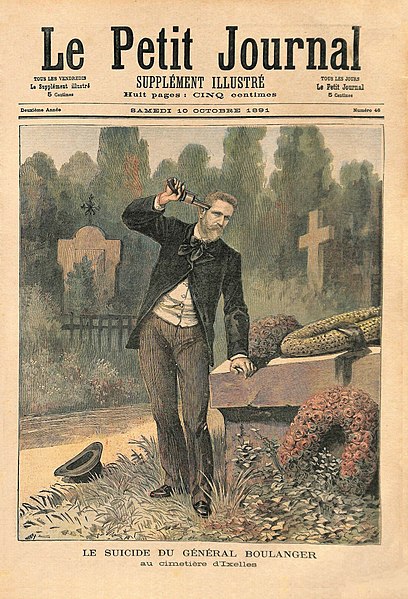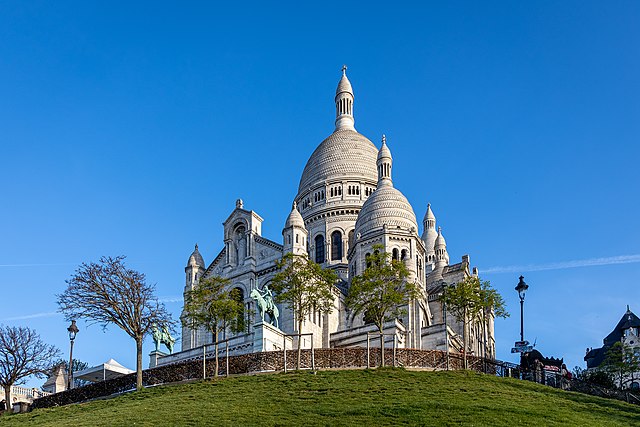Georges Ernest Jean-Marie Boulanger, nicknamed Général Revanche, was a French general and politician. An enormously popular public figure during the second decade of the Third Republic, he won multiple elections. At the zenith of his popularity in January 1889, he was feared to be powerful enough to establish himself as dictator. His base of support was the working-class districts of Paris and other cities, plus rural traditionalist Catholics and royalists. He introduced an obsessive and almost pathological anti-German sentiment, known as revanchism, which demanded the complete destruction of Imperial Germany as vengeance for the defeat and fall of the Second French Empire during the Franco-Prussian War (1870–71), into French culture and accordingly laid the foundations for the outbreak of the First World War.
Boulanger, photographed by Nadar
Portrait of General Boulanger, by Nadar
Woodburytype / carbon print of General Boulanger, aged 52 (1889). Photographed by Herbert R. Barraud
Boulanger's suicide, as reported in Le Petit Journal (10 October 1891)
The French Third Republic was the system of government adopted in France from 4 September 1870, when the Second French Empire collapsed during the Franco-Prussian War, until 10 July 1940, after the Fall of France during World War II led to the formation of the Vichy government.
Proclamation of the abolition of the monarchy in front of the Palais Bourbon, seat of the Corps Législatif, on 4 September 1870
A French propaganda poster from 1917 is captioned with an 18th-century quote: "Even in 1788, Mirabeau was saying that War is the National Industry of Prussia."
The Sacré-Cœur Basilica was built as a symbol of the Ordre Moral.
Georges Ernest Boulanger, nicknamed Général Revanche







